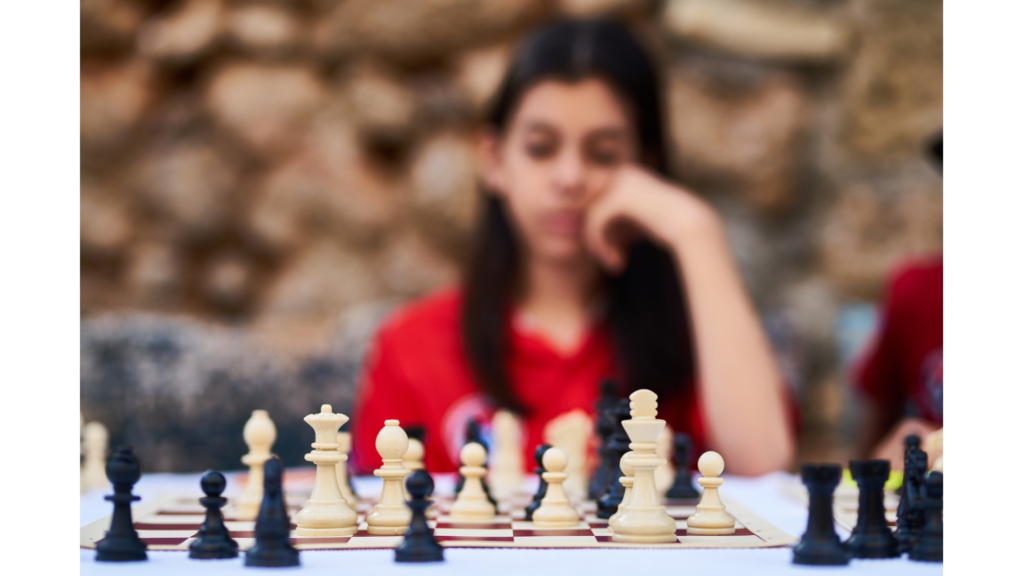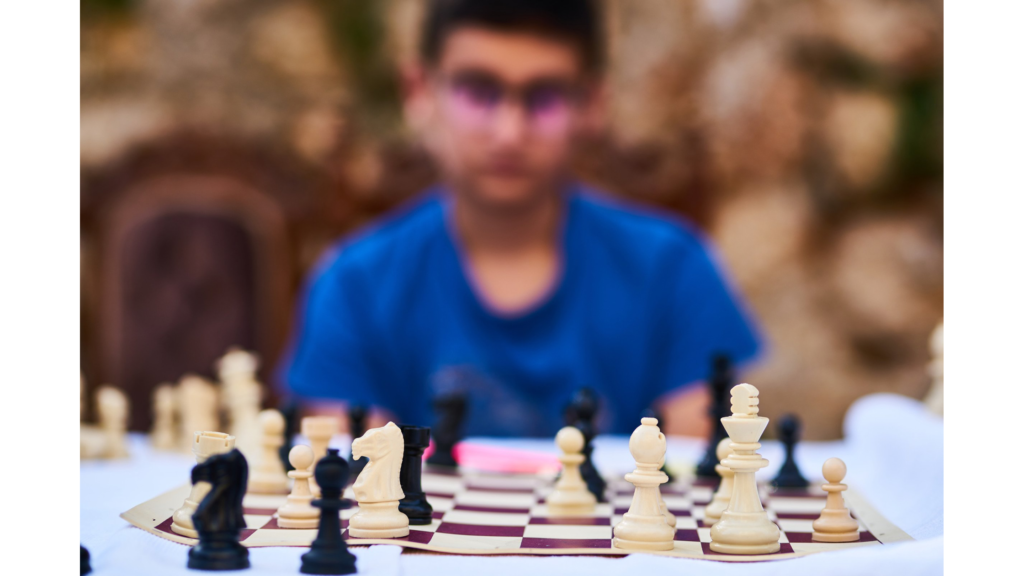A healthy mind and a fit body contribute greatly in shaping the golden future of a child. The child should be made to practice mental exercises in addition to physical exercises as he grows up. Board games such as Chess, greatly aid in developing the muscles of the brain because they involve different areas of the brain and it directly contributes towards the sharpening of the brain. Chess can be played by people of all age groups and mind sets. Chess is extremely helpful in brain development, particularly when it is played regularly from a very early age.
Brain is the most crucial organ in the human body, according to a saying “if you don’t use your brain, you lose it”, however, chess is a tool which gives players a rigorous mental workout.

Studies show that in order to play chess well, a player must develop and utilize his or her brain’s left hemisphere, which deals with object recognition, as well as the right hemisphere, which deals with pattern recognition. Playing chess will effectively exercise and develop not one but both sides of your brain. Playing chess results in better brain function, improved memory and cognitive abilities, strategic thinking and attention improvement.
Chess is considered to be a strategy game. Just like an Army General, commands his army, a chess player commands his or her pieces in chess game. This means that in order to win, you must have a better plan of action than your opponent. So, playing chess greatly improves the ability to develop certain strategies and plans.

One requires immense concentration to play chess, if your mind is not focused on the game – you lose the game. With such an immediate loss for lack of attention/concentration, the mind is trained to be focused and attentive. This results in better performance in schools and other workplaces, as less time is wasted and more victories are achieved. Tournament chess games, which bind each player to make his move within the stipulated time, hone one’s ability to perform under pressure, in school and in competitive exams.
When students play games with timed moves, they are repeatedly considering their current position on the board and determining the best possible move before time runs out. Learning to stay calm while thinking through possible moves, gives students the ability to make thoughtful decisions while under pressure in real-life scenarios down the road.
A chess game can last 20 minutes or several hours before one player emerges victorious over the other. Each move must be carefully calculated, planned and executed. The slightest lapse in concentration could lose the game. This careful calculation teaches children the virtue of patience. Not only must they stay focused while waiting for an opponent to take his or her turn, but they must also exercise patience by not rushing the number of moves it takes to complete the game.
Chess game where there’s always a clear-cut winner encourages students to have more sportsmanship, to accept when they win and when they lose. When children learn early to be good sportsman, it’s easier for them to overcome loss or failure later on in life.To defeat an opponent, a chess player must become a quick thinker. During each game, they need to imagine what will happen with each move on the board and then quickly come up with new strategies. Learning how to use creative thinking skills in real-world scenarios helps students become better problem solvers in their everyday life.



Leave a Reply